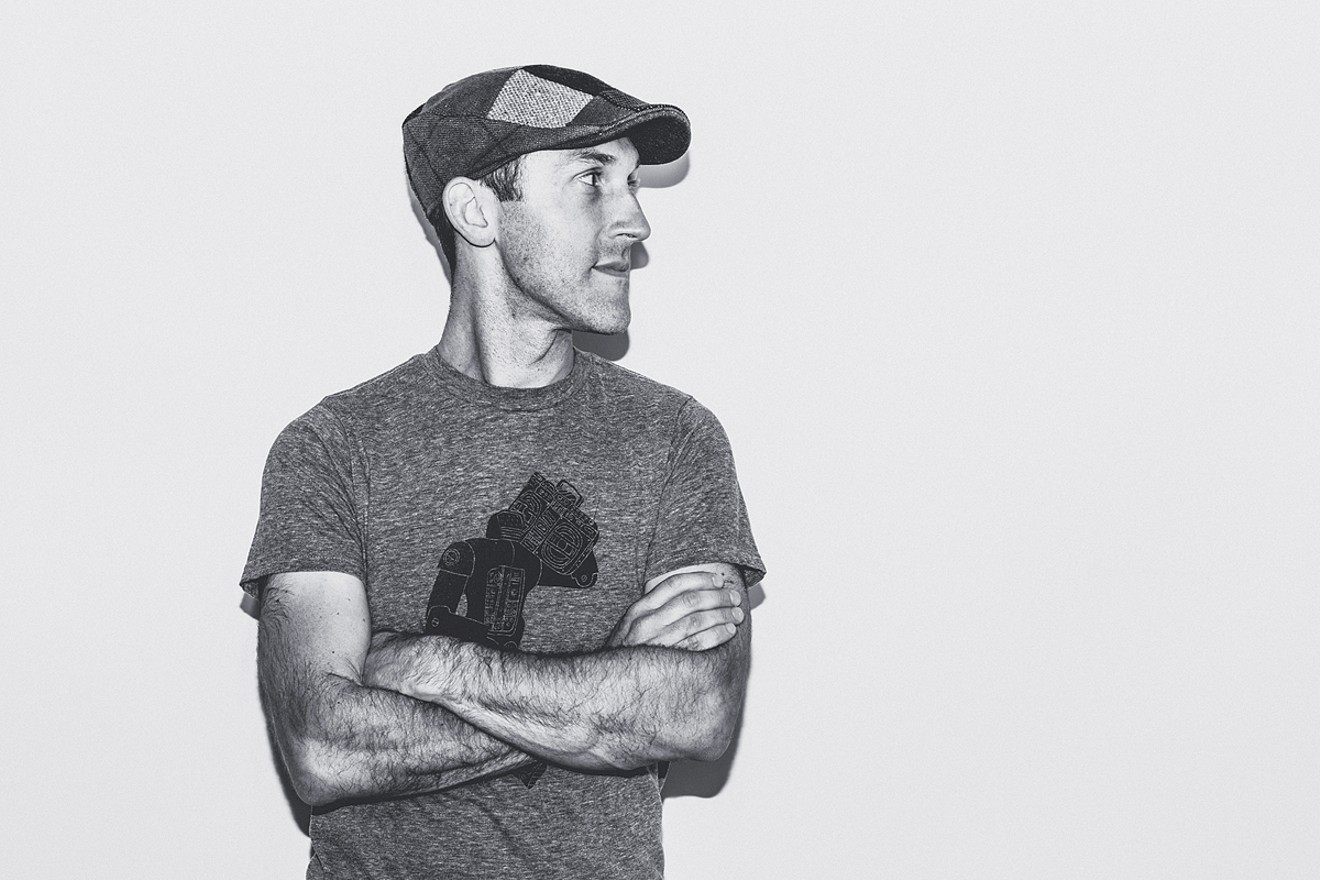Songs with lyrics tend to be specific and topical, says Ramble Jon Krohn, who records and performs under the moniker RJD2. Purely instrumental music, though, is different for him. Without a vocalist telling the listener what to imagine and how to feel, everything is up for interpretation.
"The beauty of instrumental music is that everyone reads into it differently," he says. "It's open-ended; it's an open format in a way that music with lyrics just can't be."
Creating imagery without words is what RJD2 is all about. His debut solo album and magnum opus, 2002's Deadringer, is generally acknowledged as ahead of its time for melding the drums and bass of hip-hop with the cinematic collages of R&B and soul, an approach now favored by innumerable "beatmaker guys," as Krohn characterizes them. As with all of RJD2's work, Deadringer is a visually evocative record that plays like a film score. Not coincidentally, dozens of his songs — including the big, brassy "Ghostwriter" — are recognizable from movies, commercials, TV shows, and videogames.
"That's something I've always wanted to capture," he says of his panoramic approach to music production. "High drama, high intensity — that's always been the goal, but it's fair to say I've learned more about the mechanics of doing that."
Fans consider Deadringer a classic that's introduced many listeners to the world of instrumental hip-hop — the kind of get-in-the-zone music that's perfect for doing homework or working out. Krohn shies away from being cast as a pioneer, however, and rather sees himself as contributing to a continuum of instrumental music that began well before he ever mixed a beat.
"It's hard for me to accept it as some groundbreaking record," he says. "I was just trying to do the best I could with the tools I had at the time." If anything, his revered status in beatmaking circles is more indicative of the style's explosion in popularity over the past decade-plus. "I never expected that instrumental, beat-driven music would get so popular," he says, "that people like me would, in time, be considered, quote-unquote, legacy artists."
"High drama, high intensity — that's always been the goal."
tweet this
Speaking to New Times from his studio in Columbus, Ohio, Krohn says that at this point in his career, he's probably done with the grind of constantly touring to promote records, such as last year's Dame Fortune. Rather than embarking on proper tours, he plays spot shows across the country, including this Friday's appointment at the Ground, about once a month. Now that his record label, RJ's Electrical Connections, is self-sustaining, he can afford to fly home and be with his son Charlie rather than go to the next show in another city.
"I've been really lucky," he admits.
But it's been a long musical journey. The first album that blew Krohn's mind was Led Zeppelin's IV, and he recalls having a major revelation when he was 8 or 9 years old. "I remember my friend playing the intro to 'Stairway to Heaven,' and it was the first time I realized — and it seems fairly obvious as an adult — that a recording comes from an actual, human performance. Oh, there's a song you love? Well, human beings played the parts to it."
Krohn learned how to play "Stairway to Heaven" himself and was off to the races. He's being making his own music pretty much nonstop ever since, first by playing in various bands as a teenager, attending a vocational music school in Ohio, and ultimately composing songs and performing as a DJ in his early 20s.
In 2002, RJD2 signed to El-P's record label, Definitive Jux. At the time, he was the only artist who wasn't a rapper. He's maintained a truly solo career to this day, landing some pretty plum gigs such as producing the intro theme music to AMC's award-winning series Mad Men.
"A lot of beatmaker guys strictly spend their time trying to land what they call 'placements' for rappers; they do that 24/7," he says. "I have this luxury of having a solo career, and that means I'm not sending emails eight hours a day. That's what those guys have to do. The networking, frankly speaking, is probably more work than making the music, and I don't have the patience for that."
RJD2. 11 p.m. Friday, November 17, at the Ground, 34 NE 11th St., Miami; 305-375-0001; facebook.com/thegroundmiami. Tickets cost $20 to $25 via tickefly.com.











